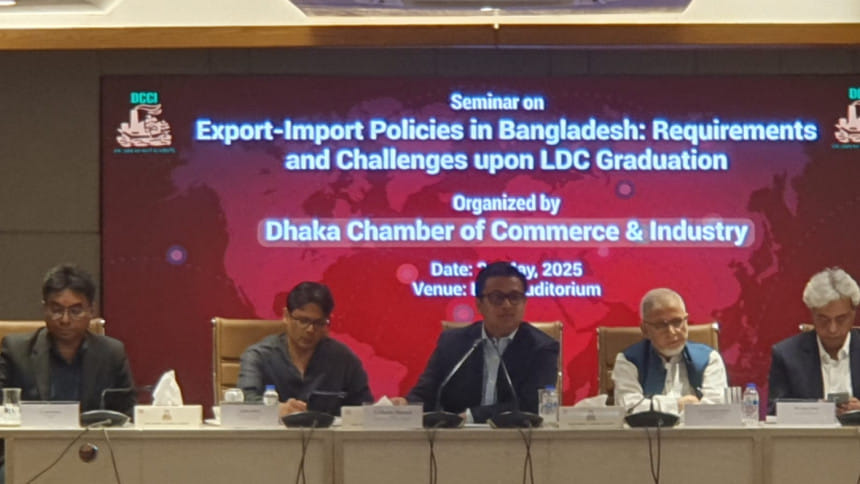Export diversification, trade policy reform crucial for post-LDC growth: economist

Bangladesh must urgently diversify its export basket and reform trade policies to address the challenges it will face after graduating from the Least Developed Country (LDC) category in 2026, said Selim Raihan, executive director of the South Asian Network on Economic Modeling (SANEM).
He was speaking at a seminar organised by the Dhaka Chamber of Commerce and Industry (DCCI) today.
In his presentation, Raihan said the country's continued reliance on ready-made garments (RMG) for export risks economic stagnation.
"No country has achieved structural transformation with high export concentration," he said, adding that diversification into high-value sectors is essential to avoid slipping into the "infeasible region" of development.
With the loss of LDC-specific trade benefits and increasing compliance requirements following graduation, Raihan called for a shift from cash-based export incentives to World Trade Organisation (WTO)-compliant support measures, including investment in infrastructure, technological upgrades, and logistics reform.
He stressed the reform of Bangladesh's high tariff regime, the rationalisation of para-tariffs, and enhanced customs efficiency to ensure competitiveness.
Drawing lessons from countries like Vietnam and Thailand, Raihan highlighted the importance of foreign direct investment, export-oriented industrialisation, and institutional preparedness in ensuring a smooth transition.
"Bangladesh must move from a preference-reliant model to a productivity-driven strategy," he said.
The DCCI seminar brought together policymakers, economists, and industry leaders to discuss strategies for ensuring a resilient and inclusive growth path in the post-LDC era.

 For all latest news, follow The Daily Star's Google News channel.
For all latest news, follow The Daily Star's Google News channel. 



Comments